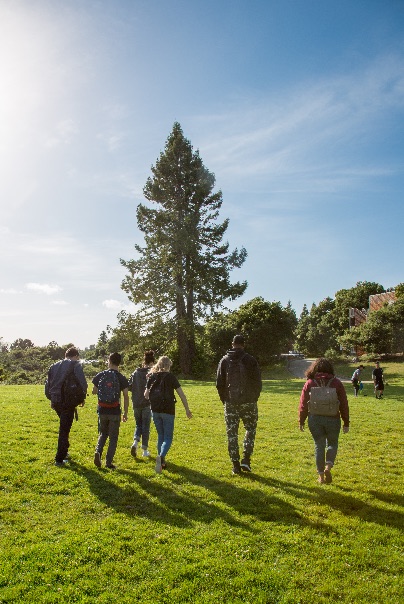Members of the UC Santa Cruz community have been encouraged for several years to report hurtful acts expressing hostility or bias on the basis of race, sexual orientation, gender, disability, place of origin, religion, and more, on the Report Hate website.
Now, this online reporting tool is expanding to become one of the first programs of its kind to take such a proactive and comprehensive approach to hate and bias incidents. Students will be encouraged to report possible hate crimes directly to the UC Santa Cruz Police Department, and the Bias Response Team will be the first responder to bias-related incidents.
Intentional collaboration forms the backbone of the Bias Response Program, said Sheree Marlowe, UC Santa Cruz campus diversity officer, who is leading the effort through the Office for Diversity, Equity and Inclusion (ODEI).
“The three themes for the new program,” she said, “are community engagement and education, campus resources, and referral to appropriate campus units for possible review and possible disciplinary action.”
Sue Matthews, associate vice chancellor for Colleges, Housing, and Educational Services, calls it “a terrific shift, insofar as it will allow one office to be the repository of all bias- and climate-related incidents that have an impact upon our students and our community.”
The responses to these incidents should vary depending on the circumstances, she said, from private consultation to outreach with campus partners to possible disciplinary action.
Expanding with the program is the community response team that’s being created to reach out to students to provide education, support, and appropriate services. There’s also an effort to make a direct connection to the new Restorative Justice Program led by Vicki Duval, from Colleges, Housing and Educational Services.
Sometimes when students report incidents, Marlowe said, they just want to be heard and to notify the campus that such incidents are taking place in our community. In those cases, reports will be taken just as they always have. In cases where broader engagement is needed, more people will be brought in to respond directly to the confidential report.
“Let’s say there’s an incident that targets the Latino/a or Chicano/a community,” she explained. “I would reach out first to the students, find out what they want—and if they feel like the incident affects a broader constituency, I’d reach out to the leaders of the El Centro Chicano Latino Resource Center to ask if they’d be part of the broader response. That is the piece that has not taken place directly in the process up until now.”
Aside from using campus resources, Marlowe said, “The other big change is that we’re going to be more intentional in telling students that hate crimes need to be reported directly to UC police department. When there’s been a physical assault, and an immediate response is needed, we need them to contact the police department directly so they can get help right away—not fill out a form on the website.”
How can an assault be elevated to a hate crime? In one example, Marlowe said, if an individual hits a student, that may be a crime of assault, but if that individual hits a student and uses a racial slur at the same time, it may be elevated to a hate crime because the incident targeted a protected class based on race.
In another example, she said, “If someone writes graffiti, that’s a violation of the student code of conduct, but if the graffiti targets a classification or has a Nazi symbol, for instance, then it may be enhanced to a hate-or-bias related violation.”
As she works to develop the program this spring, Marlowe emphasizes the importance of taking the time to educate and engage the community.
“That is a huge part of this,” she said, “and the community response team is key. The ultimate goal, of course, is to have a huge impact on the lives of students and create a safe space for them.”



